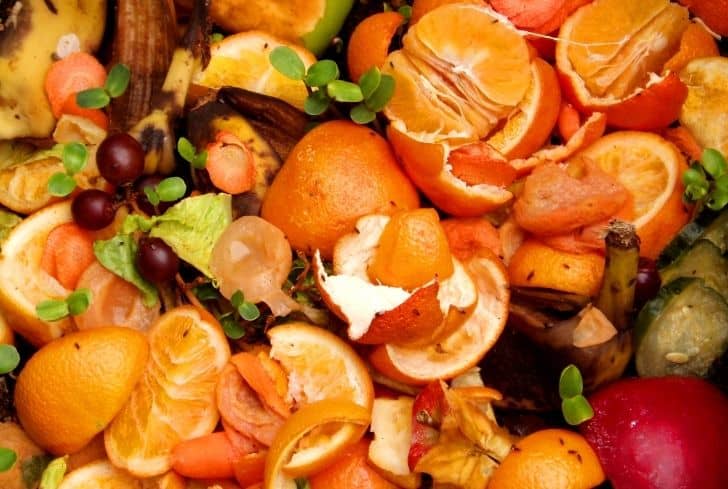Human beings have evolved and are probably the only species that can consume almost anything and stay healthy. It could be meat, vegetables, herbs and even fruits. With regards to fruits, they have been in existence for millennia, making an appearance even in the Bible’s book of Genesis. Fruits come in all shapes, colors, tastes and forms and have a myriad of health benefits to human beings.
Some of the most famous citrus fruits are lemons and oranges, commonly referred to as citrus fruits. Citrus fruits are sweet, brightly colored, flavourful and pretty, not to mention the fact that they have a bunch of health benefits, from boosting immunity to fighting cancer. Today, let us look into composting and understand if it is possible to compost oranges, lemons and grapefruit.
Can You Put Citrus in Compost?
Yes, you can put citrus fruits in compost. There is a lot of debate surrounding this question, all of which will be addressed shortly, but overwhelmingly, citrus fruits can be composted.
Citrus fruits and their peels fit into the “green compost” category, which means they a source of nitrogen, and this applies to all citrus fruits. They include clementine, lemons, satsumas, oranges, grapefruit, and limes.
You can use the peels, rinds, and pulp in your compost pile, which is a bonus for those who like using their juicer frequently or enjoy having fresh fruit every day. Citrus fruits can be added to a hot or cold compost and will produce similar benefits to the compost.
A bonus of composting citrus fruits is how they heat the pile, which helps speed up the overall decomposition process. The strong scent from these fruits also adds to the compost pile as they can help deter pesky animals and bugs. The oils in the fruit also break down fast enough, so they are not harmful to the useful insects you want to keep around.
There also exist major challenges and reasons as to why some argue against composting citrus fruits. One of them is that citrus fruits’ skin contains a chemical known as d-limonene. The chemical is not eaten by all bacteria, but some. This means that the decomposition process of citrus fruits will overall be slower.
Some argue that if other bacteria or microorganisms eat this chemical they could be harmed, meaning you should not introduce too many citrus fruit peels inside the compost. It also means the peels should be avoided inside vermicompost as the worms might have a hard time working on the peels.
Secondly, citrus fruits and onions are advised not to be placed inside compost because of their acidic nature. The natural chemicals and acidity in citrus peels and onions can kill worms and other microorganisms, which can slow down the decomposition in your pile.
To counter this, you have to add a deacidification agent like hydrated white lime, to neutralize the acidity. You should also chop them into bits as they can take a long time before they fully decompose.
Thirdly, if your citrus fruits are moldy, take extra precautions. Some fruits could be rotting because of a disease, which can be passed on through the compost back into the garden.
You should also use additional bulking agents like wood chips or shredded cardboard to offset the moisture and keep your compost in optimal condition. You can also add the moldy citrus straps to the center of the pile on top of dry leaves and help speed up the process.
Can You Compost Oranges?
Certainly, you can compost oranges. Oranges and their peels make good compost material when you incorporate them correctly. They introduce nitrogen, potassium, and phosphorus into your compost heap. These nutrients aid in the waste breakdown within your pile and help enrich your final compost medium.
Take time and break down the fruit especially its peels into small pieces, to ensure more surface area has exposure to the bacteria within your compost. Also, always balance the ‘wet’ waste of the oranges with an equal amount of a bulking agent like dry leaves to avoid making your compost offsetting the moisture in there, as well as ensuring it is healthy and in optimum condition.
Also, deal with the seeds, especially if you are using cold compost as it can provide a proper environment for them to germinate rather than decompose. As such, you can remove the seeds before disposal or use a hot composting method.
However, oranges have specific tendencies that can harm your compost pile, so use them wisely. In general, you should not compost too many oranges. This is because they can disrupt the balance of your compost heap.
Citrus fruits are acidic and the acidity will affect the bacteria at work and eventually the normal composting process. As such, if you are in the habit of making orange juices from the fruit daily, dumping all that waste fruit into the composting bin might cause harm.
If you have to, consider neutralizing the acidity inside the composting bin with something like hydrated white lime. Also, consider removing the seeds from the orange as in a cold compost, they will germinate rather than decompose. Cold composting does not generate temperatures high enough to kill the seeds, and they can find the perfect environment for germinating.
Also, chop or shred the fruit and peel using a knife or scissors for a quicker process. Finally, bury them near the center of the pile so that they may decompose quickly as well as be less attractive to insects and other pests
Can You Compost Orange Peels?
Of course, you can compost orange peels. Some will argue against this but consider the following. The orange peels contain a lot of citric acids, like the fruit they are covering. Too much acidity will disrupt the normal process of decomposition.
They also contain the d-limonene chemical on their peels, which can only be chewed upon by particular bacteria and not all inside the compost. This means the composting process will be slow, and also other bacteria might be harmed by the chemical.
Bacteria will have a hard time breaking down the orange bits fast enough which also means an off-putting odor will be released.
To counter these issues, split the oranges open. Doing this aids in decomposition. Also, try some hydrated white lime, which is not only safe for the composting process but also neutralizes the acidity posed by the peels.
Also, do not forget that the d-limonene disappears as the peel rots. Cutting the peels into smaller pieces aids in the rotting process, for which the worms will be grateful. Cutting the peels up also allows for more surface area to be exposed to the bacteria within your compost heap.
Also, consider placing the chopped-up pieces near the center of the pile for faster decomposition. Rotten citrus scraps are a fantastic addition to your compost pile since they are already starting to break down.
As such, if your oranges are moldy, do not be afraid to add them and their peels inside the pile. Just be careful not to place them there if the mold is a result of a disease, as the disease might live on inside the compost and later in the garden.
If you have to compost the peels, consider cleaning them as they might contain pesticide or herbicide which is harmful to the bacteria in the compost, and will be transferred to the garden through the compost
How Long Does It Take For an Orange Peel to Compost?
Depending on your compost’s environment, orange peels can take up to 6 months before decomposing fully. The process can, however, be sped up by cutting the peels into smaller pieces. The smaller pieces can break down more quickly as there is more surface area for the bacteria to work on.
The composting process can also be sped up if you normalize turning the pile occasionally. In a drier environment or compost that is not moisturized correctly, the orange peels can take longer to decompose and probably last indefinitely.
Remember, they contain d-limonene, an antiseptic substance found in fresh citrus fruits. The substance is not beloved by microorganisms and bacteria inside the compost.
Therefore, if the conditions favor the substance, it will last quite a long time before breaking down. Also, the natural insecticide keeps insects from nibbling on them, ensuring they do not start to rot easily. However, if they start to decompose, the substance goes away.
Can You Compost Lemons?
Oh yes! Lemons, like oranges, can also be composted. When added correctly, lemons can be an excellent addition to your compost. However, avoid composting too many lemons as they can disrupt the normal workings of compost.
First, their peels, like other citrus fruits, contain the chemical d-limonene chemical, which can only be chewed upon by particular bacteria and not all inside the compost.
Secondly, the lemon is too acidic and too much lemon waste added at one time will raise the acidity of the heap, setting off a disruption within your compost pile. Bacteria may have a hard time breaking down the lemon bits fast enough, which could lead to an off-putting odor in your compost heap.
To counter this, consider chopping the lemon peels into smaller pieces so that they might decompose faster. This way, the d-limonene chemical will also disappear quickly. Also, try some hydrated white lime on the lemons as it will lower their acidity and neutralize the compost as it should be.
Next, try burying the lemons near the center of the pile for a quicker decomposition process. If you manage to have acidic compost, made from too many oranges or lemons, try adding it to plants like rhododendrons, azaleas, and camellias, that love acid-rich soils.
Using compost made with lots of lemon and orange waste could work wonders in these areas of your garden. Also, if you have to compost the lemon peels, consider cleaning them as they might contain pesticide or herbicide which is not only harmful to the bacteria in the compost but will also be transferred to the garden through the compost
Can You Compost Grapefruit?
Yes, you can compost grapefruit, although in moderate amounts. Like lemons and oranges, grapefruit has a protective peel which is a hindrance to speedy composting.
First, the peels should therefore be cut into tiny pieces if you have to compost them.
Secondly, and again like with oranges and lemons, grapefruits and their peels are acidic, a state that is not attractive to composting bacteria. The acidity can disrupt the balance of your compost especially if added in large amounts. The overly acidic nature of the citrus fruit also causes a problem from the bacteria that break the stuff down into compost. Therefore, neutralize the acidity using white lime.
Next, the peels of these citrus fruits contain d-limonene, an antiseptic substance found in fresh citrus fruits. The worms that work inside the compost, do not like the substance, a factor that causes the entire process to be slow.
The good thing is that the d-limonene disappears as the peel rots though. So, only add the peels when they start to rot or cut them off for speedy decomposition.
References:
https://www.healthline.com/nutrition/citrus-fruit-benefits
https://www.compostthis.co.uk/orange
https://www.deschuteslandtrust.org/news/blog/2019-blog-posts/decomposition-organic-litter






